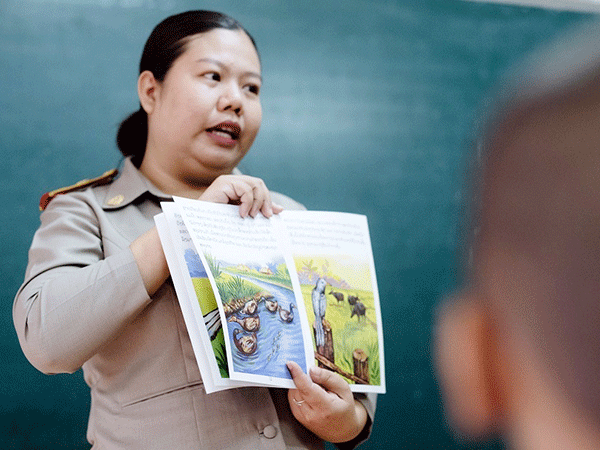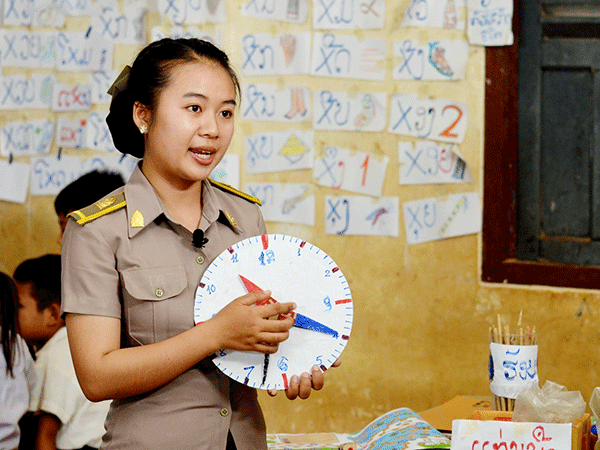Laos, Australia partner to strengthen
teacher development
According to a new report, the Australian Government’s flagship education programme in Laos, BEQUAL, has had a positive impact on teaching quality, improved literacy and increased student engagement.
Recent research has revealed that three years after the introduction of a new Lao language Grade 1 curriculum, supported by the Australian Government’s Basic Education Quality and Access in Lao PDR (BEQUAL) programme, teachers demonstrated increased knowledge and confidence and students are more engaged in the classroom, leading to improved literacy.
BEQUAL Phase 1 (2015-2022) developed curriculum orientation training, provided teaching and learning resources, and supported education support grants in target districts.
“The Australian and Lao Governments are united in our dedication to improving teaching quality and student learning outcomes for all Lao students, especially those experiencing disadvantage. While COVID-19 disruptions had a significant impact on schools and teachers throughout the country, the improved outcomes in Grade 1 teachers’ knowledge,
 |
attitudes and practices are exactly what we hoped to achieve with the new primary curriculum,” said the Director General of the Research Institute for Educational Sciences, Ministry of Education and Sports, Associate Professor Dr Anoulom Vilayphone.
A multi-year study by the Australian Council for Educational Research (ACER) collected data in 2019 (baseline), in 2021, and again in 2022, to assess the impact of BEQUAL support in improving teaching quality and student literacy outcomes.
The study found that teachers valued BEQUAL-supported orientation training, as well as the new curriculum teaching and learning resources. Nonetheless, teachers consistently signalled the need for more comprehensive and ongoing professional learning.
“Teachers in Laos are often working in difficult and remote conditions. Incorporating new approaches to teaching under a new curriculum can be challenging. This study has helped us to understand how teachers can be supported to deliver better outcomes for students,” said the Australian Ambassador to Laos, Mr Paul Kelly.
Between 2019 and 2021, the proportion of ‘high’ performing students increased from 12 percent to 21 percent. As a result of the new curriculum and BEQUAL support, students are also more interested and engaged in school. In common with their teachers, the research showed that students need a great deal more time and support to meet literacy expectations in the new curriculum.
“The Australian Government is committed to investing in education in Laos. We know that improving learning outcomes for girls and boys, especially those most vulnerable and disadvantaged, will have long-term, positive outcomes for the development of the country overall. We need to build on initial gains in student engagement, for better learning,” Ambassador Kelly added.
The study involved surveys of teachers and principals, student literacy tests across 355 schools, and interviews and classroom observations in 12 case study schools. The study recommendations include: investing in continuous professional learning to support teachers; greater focus on building students’ oral language and school readiness skills in both education and home settings; and collecting and using student learning data to target interventions at the system and school level.
“These results give us insights into where we need to target specific support to students and teachers. We are looking to incorporate these recommendations as we work on BEQUAL Phase 2 with the Australian Government,” Associate Professor Dr Anoulom Vilayphone added.
By Times Reporters
(Latest Update November 21, 2023)
|



